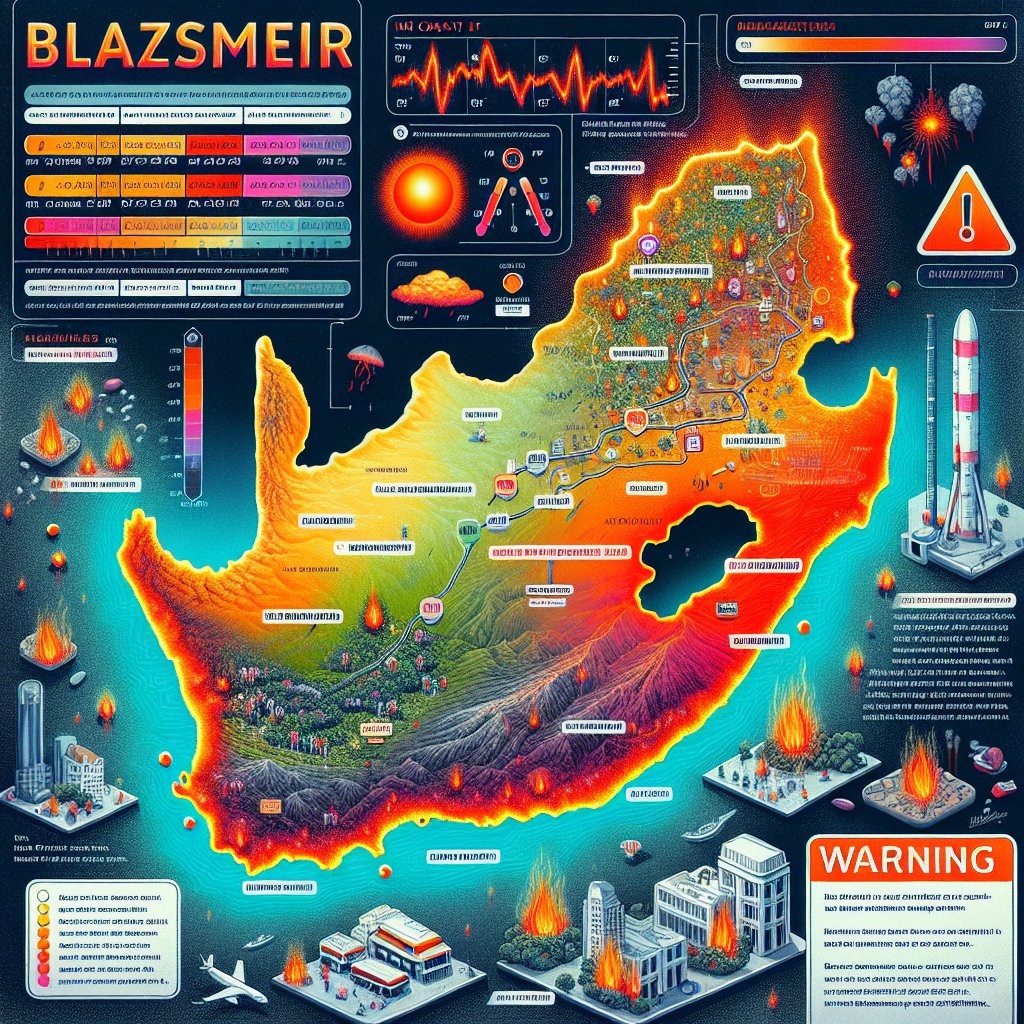Image created by AI
Scorching Heatwave Prompts SAWS Advisory in Western Cape
As the summer sun continues to bear down on South Africa's Western Cape, the region braces once again for blistering heat that is breaking the seasonal norms. The South African Weather Service (SAWS) has issued a critical weather advisory for the province, warning of exceptionally high temperatures that could soar to the 40-degree mark for the third week in a row.
Residents in the interior of the West Coast District, Drakenstein municipality, and parts of the central Karoo are presently experiencing this extreme heat. SAWS predicts that the oppressive conditions will spread, enfolding the vast majority of the Western Cape, as well as creeping into the Namakwa District come Monday. By Tuesday, the eastern interior will also be ensnared by this intense heatwave with temperatures typically ranging from the high 30s to lower 40s in the aforementioned locales.
The advisory, which spans from the morning of February 18 to the evening of February 20, comes as a stark reminder of the potentially hazardous health implications that accompany such severe heat. The risk of hyperthermia—an often-overlooked yet dangerous outcome of exposure to high temperatures—is amongst the chief concerns. This condition arises when the human body, typically well-adapted to regulate its temperature through sweating, is overwhelmed by heat and unable to cool down efficiently.
Furthermore, SAWS has urged people to be acutely aware of the life-threatening risks posed by heat stroke. This critical condition can arise swiftly in extreme heat situations and requires immediate medical attention to prevent potentially fatal outcomes. Residents and visitors alike are advised to take proactive measures to mitigate these risks—staying indoors during peak heat hours, keeping hydrated, and avoiding strenuous activities that can exacerbate the effects of the heat.
As a country familiar with high temperatures but currently facing the harsh reality of climate extremes, South Africa is witnessing an increasing prevalence of weather-related advisories. The Western Cape's recurrent heatwaves signal a trend that demands both adaptation and swift action in addressing global warming—a root cause amplified by human activities that has far-reaching impacts on weather patterns.
In the face of such sweltering forecasts, communities are beckoned to heed the advice of SAWS and collaborate in fostering an environment of awareness and preparedness. Schools, businesses, and local governments are especially encouraged to take necessary precautions and provide conducive environments to combat the heat's adverse effects.
As the Western Cape confronts the unwavering heat, SAWS continues to monitor the situation closely, ready to update advisories and provide essential guidance. It's a critical period in which the collective efforts of the community will define the resilience in facing this natural adversity with vigilance and care.










